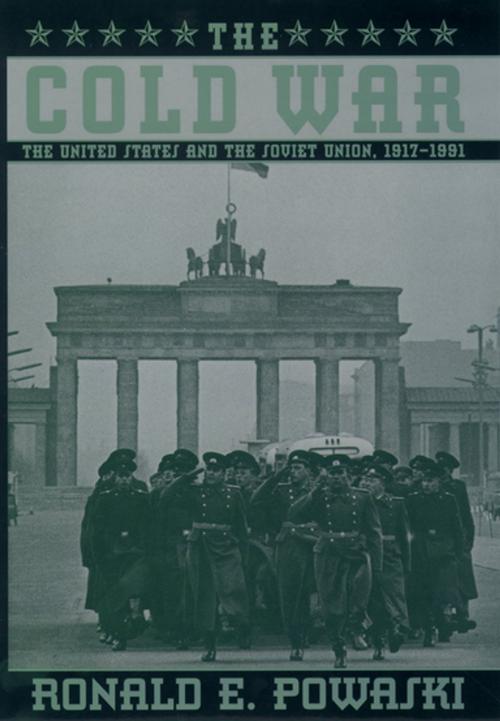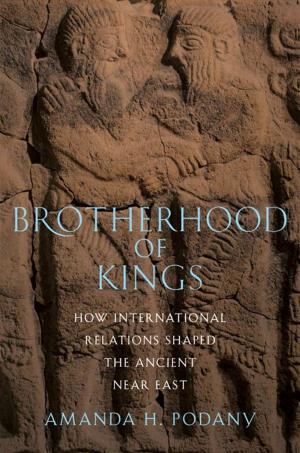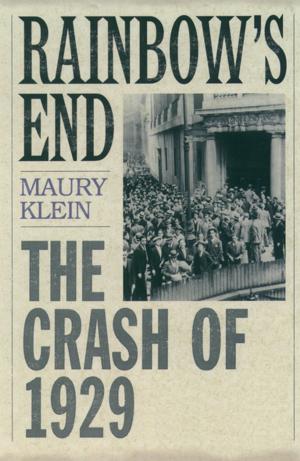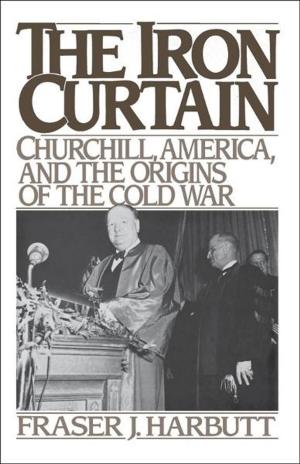The Cold War: The United States and the Soviet Union, 1917-1991
The United States and the Soviet Union, 1917-1991
Nonfiction, Social & Cultural Studies, Political Science, International, International Relations, History| Author: | Ronald E. Powaski | ISBN: | 9780199879588 |
| Publisher: | Oxford University Press, USA | Publication: | August 11, 1997 |
| Imprint: | Oxford University Press | Language: | English |
| Author: | Ronald E. Powaski |
| ISBN: | 9780199879588 |
| Publisher: | Oxford University Press, USA |
| Publication: | August 11, 1997 |
| Imprint: | Oxford University Press |
| Language: | English |
For half of the twentieth century, the Cold War gripped the world. International relations everywhere--and domestic policy in scores of nations--pivoted around this central point, the American-Soviet rivalry. Even today, much of the world's diplomacy grapples with chaos created by the Cold War's sudden disappearance. Here indeed is a subject that defies easy understanding. Now comes a definitive account, a startlingly fresh, clear eyed, comprehensive history of our century's longest struggle. In The Cold War, Ronald E. Powaski offers a new perspective on the great rivalry, even as he provides a coherent, concise narrative. He wastes no time in challenging the reader to think of the Cold War in new ways, arguing that the roots of the conflict are centuries old, going back to Czarist Russia and to the very infancy of the American nation. He shows that both Russia and America were expansionist nations with messianic complexes, and the people of both nations believed they possessed a unique mission in history. Except for a brief interval in 1917, Americans perceived the Russian government (whether Czarist or Bolshevik) as despotic; Russians saw the United States as conspiring to prevent it from reaching its place in the sun. U.S. military intervention in Russia's civil war, with the aim of overthrowing Lenin's upstart regime, entrenched Moscow's fears. Soviet American relations, difficult before World War II--when both nations were relatively weak militarily and isolated from world affairs--escalated dramatically after both nations emerged as the world's major military powers. Powaski paints a portrait of the spiraling tensions with stark clarity, as each new development added to the rivalry: the Marshall Plan, the communist coup in Czechoslovakia, the Berlin blockade, the formation of NATO, the first Soviet nuclear test. In this atmosphere, Truman found it easy to believe that the Communist victory in China and the Korean War were products of Soviet expansionism. He and his successors extended their own web of mutual defense treaties, covert actions, and military interventions across the globe--from the Caribbean to the Middle East and, finally to Southeast Asia, where containment famously foundered in the bog of Vietnam. Powaski skillfully highlights the domestic politics, diplomatic maneuvers, and even psychological factors as he untangles the knot that bound the two superpowers together in conflict. From the nuclear arms race, to the impact of U.S. recognition of China on detente, to Brezhnev's inflexible persistence in competing with America everywhere, he casts new light on familiar topics. Always judicious in his assessments, Powaski gives due credit to Reagan and especially Bush in facilitating the Soviet collapse, but also notes that internal economic failure, not outside pressure, proved decisive in the Communist failure. Perhaps most important, he offers a clear eyed assessment of the lasting distortions the struggle wrought upon American institutions, raising questions about whether anyone really won the Cold War. With clarity, fairness, and insight, he offers the definitive account of our century's longest international rivalry.
For half of the twentieth century, the Cold War gripped the world. International relations everywhere--and domestic policy in scores of nations--pivoted around this central point, the American-Soviet rivalry. Even today, much of the world's diplomacy grapples with chaos created by the Cold War's sudden disappearance. Here indeed is a subject that defies easy understanding. Now comes a definitive account, a startlingly fresh, clear eyed, comprehensive history of our century's longest struggle. In The Cold War, Ronald E. Powaski offers a new perspective on the great rivalry, even as he provides a coherent, concise narrative. He wastes no time in challenging the reader to think of the Cold War in new ways, arguing that the roots of the conflict are centuries old, going back to Czarist Russia and to the very infancy of the American nation. He shows that both Russia and America were expansionist nations with messianic complexes, and the people of both nations believed they possessed a unique mission in history. Except for a brief interval in 1917, Americans perceived the Russian government (whether Czarist or Bolshevik) as despotic; Russians saw the United States as conspiring to prevent it from reaching its place in the sun. U.S. military intervention in Russia's civil war, with the aim of overthrowing Lenin's upstart regime, entrenched Moscow's fears. Soviet American relations, difficult before World War II--when both nations were relatively weak militarily and isolated from world affairs--escalated dramatically after both nations emerged as the world's major military powers. Powaski paints a portrait of the spiraling tensions with stark clarity, as each new development added to the rivalry: the Marshall Plan, the communist coup in Czechoslovakia, the Berlin blockade, the formation of NATO, the first Soviet nuclear test. In this atmosphere, Truman found it easy to believe that the Communist victory in China and the Korean War were products of Soviet expansionism. He and his successors extended their own web of mutual defense treaties, covert actions, and military interventions across the globe--from the Caribbean to the Middle East and, finally to Southeast Asia, where containment famously foundered in the bog of Vietnam. Powaski skillfully highlights the domestic politics, diplomatic maneuvers, and even psychological factors as he untangles the knot that bound the two superpowers together in conflict. From the nuclear arms race, to the impact of U.S. recognition of China on detente, to Brezhnev's inflexible persistence in competing with America everywhere, he casts new light on familiar topics. Always judicious in his assessments, Powaski gives due credit to Reagan and especially Bush in facilitating the Soviet collapse, but also notes that internal economic failure, not outside pressure, proved decisive in the Communist failure. Perhaps most important, he offers a clear eyed assessment of the lasting distortions the struggle wrought upon American institutions, raising questions about whether anyone really won the Cold War. With clarity, fairness, and insight, he offers the definitive account of our century's longest international rivalry.















